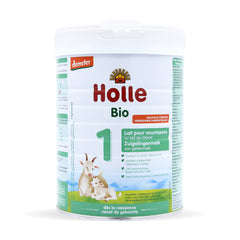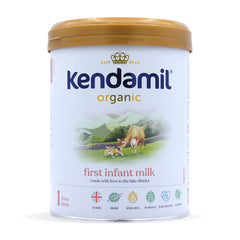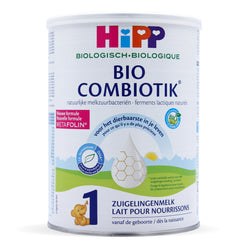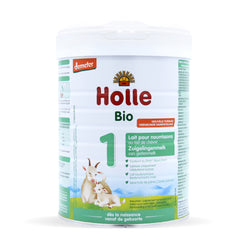Guide To Postpartum Recovery
35 hours of research 6 minute read

Bringing a new life into the world is a magical and transformative experience, but it also comes with significant physical and emotional changes. As a new mom, your postpartum recovery is a crucial phase, and taking care of yourself is essential for both your well-being and your baby's. In this blog, we'll discuss some valuable postpartum recovery tips for new moms to help you navigate this beautiful but challenging journey.
Tips for a Speedy Postpartum Recovery
Speeding up postpartum recovery is a common goal for many new moms, and several strategies can help facilitate a quicker and smoother recovery. Here are some key factors that can aid in expediting the postpartum recovery process:
Rest and Sleep: Adequate rest is crucial for healing and energy restoration. Try to sleep or nap when your baby sleeps to maximize your rest time.
Nutritious Diet: Maintain a balanced diet rich in vitamins, minerals, and nutrients. Focus on foods that support healing and milk production if you're breastfeeding. Eating well will aid in recovery and boost your energy levels.
Hydration: Staying well-hydrated is essential for recovery. Proper hydration supports overall health and can help prevent constipation, a common postpartum issue.
Emotional Support: Seek emotional support from your partner, family, friends, or support groups. Discuss your feelings and concerns with people you trust, as emotional well-being is a critical aspect of postpartum recovery.
Hygiene and Self-Care: Maintain proper hygiene, particularly in the perineal area, to prevent infection. Use comfortable and breathable underwear, and consider sitz baths to soothe any discomfort. A gentle skincare routine can boost self-esteem.
Pain Management: If you experience postpartum pain or discomfort, consult your healthcare provider for safe and effective pain management strategies. They may recommend over-the-counter pain relievers or prescribed medications.
Bonding with Your Baby: Skin-to-skin contact, breastfeeding, and cuddling strengthen the bond between you and your baby. These moments provide emotional fulfillment and help you navigate your recovery journey.
Mental Health Monitoring: Be mindful of your mental health and seek help if you're struggling with postpartum depression or anxiety. Your healthcare provider can provide guidance and support in managing these emotional challenges.
Regular Check-ups: Attend your postpartum check-ups with your healthcare provider to ensure your recovery is progressing as expected. They can address any concerns or complications.
What Not to Do During Postpartum Healing
During the postpartum recovery period, there are several things that new moms should avoid to promote a safe and smooth healing process. Here's a list of things to steer clear of during postpartum recovery:
Strenuous Exercise: Avoid high-impact and strenuous exercises, as they can strain your body and slow down the healing process. Instead, focus on gentle postpartum exercises that are safe and recommended by your healthcare provider.
Lifting Heavy Objects: Refrain from lifting heavy objects, as it can strain your abdominal muscles and pelvic floor. Let others assist with lifting and carrying heavy items.
Sexual Activity: Avoid sexual intercourse until you have received clearance from your healthcare provider. Engaging in sexual activity too soon can lead to discomfort and increase the risk of infection.
Neglecting Rest: Adequate rest is vital for your recovery. Avoid overexertion and prioritize sleep and relaxation. Nap when your baby naps, and try to maintain a regular sleep schedule.
Skipping Meals: Postpartum recovery demands extra nutrition. Skipping meals can lead to fatigue and slow down the healing process. Ensure you are getting enough calories and nutrients to support your recovery and breastfeeding (if applicable).
Ignoring Hygiene: Maintain good hygiene, particularly in the perineal area. Neglecting hygiene can increase the risk of infection. Practice regular perineal care and keep the area clean and dry.
Overextending Social Obligations It's essential to set boundaries and avoid overextending yourself with social obligations. Prioritize your well-being and limit visitors and commitments that could add stress.
Stress and Anxiety: While it's natural to feel anxious or stressed as a new mom, prolonged stress can impact your recovery. Seek emotional support and consider speaking with a therapist if you're struggling with anxiety or depression.
Unhealthy Foods: Avoid consuming excessive processed or unhealthy foods. Opt for a balanced diet that includes fruits, vegetables, lean proteins, whole grains, and plenty of water. Unhealthy foods can negatively affect your energy levels and overall well-being.
Isolation: Isolating yourself can exacerbate feelings of postpartum depression or anxiety. Stay connected with loved ones and consider joining support groups or online communities for new moms.
Ignoring Pain or Complications: If you experience persistent pain, discomfort, or complications during your recovery, don't ignore them. Reach out to your healthcare provider for guidance and treatment.
Dehydration: Stay well-hydrated by drinking plenty of water. Dehydration can worsen postpartum fatigue and affect milk production if you're breastfeeding.
Inadequate Self-Care: Prioritize self-care and don't neglect your physical and emotional needs. Take time for yourself, even if it's just a few minutes each day to relax or engage in an activity you enjoy.
How Long Should You Rest After Childbirth
-
Vaginal Delivery: After a vaginal delivery, many healthcare providers recommend at least 6 weeks of postpartum recovery time. During this period, it is crucial to prioritize rest, avoid strenuous activities, and gradually ease back into your regular routine.
-
Cesarean Section (C-Section): Recovery after a cesarean section typically requires more time, often up to 8 weeks or longer. Healing from a c-section involves not only the uterine incision but also the abdominal incision, making it essential to take extra precautions and follow medical advice closely.
Note: It's important to remember that these are general guidelines and that the specifics of your recovery may differ. Factors like the presence of complications during childbirth, individual health, and the extent of support you have from family or caregivers can influence the duration of your postpartum recovery.
Most Popular Baby Formulas To Help After Childbirth
During the postpartum period, it's crucial to prioritize both your recovery and your baby's nutrition. Ensuring that your baby is well-fed with high-quality, nutritious formula can significantly ease your recovery process. Choosing high-quality baby formulas like HiPP Dutch, Holle Goat Dutch, and Kendamil Organic ensures that your baby receives optimal nutrition, reducing your stress and providing you with the reassurance needed to focus on your postpartum recovery.
✓ 100% Organic formula
✓ With Added Prebiotics and Probiotics
✓ HiPP's most popular formula
Check PricePopular With Parents Because: HiPP Dutch is renowned for its organic ingredients and strict quality standards. This formula is made from carefully selected organic ingredients, ensuring that your baby receives optimal nutrition. It is designed to be gentle on your baby's digestive system, reducing the chances of discomfort and gas. Knowing that your baby is receiving essential nutrients from a trusted source can provide you with peace of mind, allowing you to focus more on your own recovery.
✓ Demeter certified (Organic++)
✓ Easy-to-digest Goat Milk Formula
✓ Popular for babies with sensitivity to cow's milk
Check PricePopular With Parents Because: Holle Goat Dutch formula is made from organic goat milk, which is easier to digest compared to cow's milk. This can be particularly beneficial for babies with sensitivities or allergies. The gentle digestion and natural prebiotics support healthy digestion and immune function, which can lead to a more content baby. A happier baby means less stress and more restful moments for you during your postpartum period.
✓ Contains Milk Fat Globule Membrane (MFGM)
✓ Vegetarian-friendly (Contains Plant-Based DHA and ARA)
✓ EU and British Soil Association Certified Organic
Check PricePopular With Parents Because: Kendamil Organic formula stands out with its commitment to using whole milk and avoiding palm oil, offering a more natural and nutritious option for your baby. Rich in essential fatty acids and vitamins, it supports brain development and overall growth. Ensuring your baby is well-nourished with Kendamil Organic can reduce feeding-related worries, allowing you to focus on your own well-being and recovery.
Safely Getting Back in Shape After Childbirth

-
Pelvic Floor Exercises: Kegels and other pelvic floor exercises can help improve bladder control and support the muscles weakened during pregnancy and childbirth.
-
Postnatal Yoga: Postnatal yoga focuses on gentle stretches, strengthening exercises, and relaxation, making it an excellent choice for new moms.
-
Walking: Taking short, brisk walks can be a low-impact and accessible way to regain strength and increase energy levels.
-
Low-Impact Aerobics: Low-impact aerobics classes specifically designed for postpartum women can offer cardiovascular benefits without straining your joints.
-
Strength Training: Gradually reintroduce light strength training to regain muscle tone, especially in your core and lower body.
Safety Precautions:
Always consult your healthcare provider before starting any exercise program postpartum. Pay attention to your body's signals and avoid pushing yourself too hard too soon. Stay hydrated and ensure you have proper nutrition, especially if you're breastfeeding. Invest in appropriate workout gear and a well-fitting sports bra to provide essential support.
Navigating Baby Blues with Practical Steps

Baby blues also known as postpartum blues, are a common and usually mild emotional state that many new mothers experience in the first one to two weeks after giving birth. It's characterized by mood swings, heightened emotional sensitivity, and occasional feelings of sadness, anxiety, or irritability. Baby blues are a result of the significant hormonal and emotional changes that occur after childbirth.
Here are some things you can do to manage and alleviate baby blues:
-
Rest and Self-Care: Ensure you're getting enough rest. While it can be challenging with a newborn, try to take naps when your baby sleeps and ask for help from your support system.
-
Accept Support: Lean on your partner, family, and friends for emotional support, help with daily tasks, and childcare.
-
Talk About It: Share your feelings with someone you trust. Sometimes, talking about what you're going through can provide relief and comfort.
-
Take Short Breaks: If possible, take short breaks away from your baby to recharge. Even a few minutes of alone time can make a difference.
-
Healthy Diet and Hydration: Proper nutrition and staying hydrated can help stabilize your mood.
-
Exercise: Gentle exercise can help boost your mood and energy levels. Even a short walk can make a positive impact.
-
Avoid Isolation: Try to maintain social connections. Isolation can exacerbate feelings of sadness.
-
Limit Stressors: Reduce unnecessary stress and responsibilities during this time. Focus on essential tasks and postpone less critical ones.
-
Set Realistic Expectations: It's okay if you're not feeling 100% right away. Set realistic expectations for yourself and your recovery.
-
Professional Help: If your baby blues persist, intensify, or if you have thoughts of self-harm, it's crucial to seek help from a healthcare provider or a mental health professional. In some cases, baby blues can develop into postpartum depression, which may require treatment.
It's essential to remember that baby blues are common and usually temporary. However, if you find that your symptoms are severe or persistent, don't hesitate to reach out for professional support. Your well-being is essential during this postpartum period, and there is help available to ensure you receive the care and support you need.
Navigating Doubts in Parenthood
Becoming a parent is a remarkable journey, filled with both joy and uncertainty. While holding your newborn in your arms can be a profoundly moving experience, it often comes with a tidal wave of self-doubt and questions like, "Am I doing this right? Am I taking care of my baby properly?"
These doubts are entirely normal, and every parent goes through them at some point. Parenting is not a one-size-fits-all experience, and there's no universal manual to follow. In this blog, we'll explore the common doubts new parents face and provide guidance to help you navigate this challenging, yet rewarding, path of parenthood.
Common Doubts in New Parenthood
Feeding Worries: Whether you're breastfeeding, formula-feeding, or combining both, concerns about whether your baby is getting enough nourishment are prevalent. Am I producing enough milk? Is my baby latching properly? Are they gaining enough weight?
Sleep Struggles: Sleep deprivation is a harsh reality for most new parents. You may wonder if you're doing something wrong when your baby doesn't sleep through the night.
Health and Safety: Questions about your baby's well-being are bound to arise. Is their temperature too high or too low? Are they too fussy? Is that rash something to be concerned about?
Comparison with Others: It's easy to fall into the trap of comparing yourself to other parents or seeking advice from different sources, often leading to self-doubt. Is my parenting style "right" compared to others?
Bonding Concerns: Building a strong bond with your baby takes time, and you might question if you're doing enough to nurture this connection.
Decision Making: The numerous choices involved in parenting, from diaper brands to childcare options, can make you question your decisions. Are you making the right choices for your baby?
Strategies to Ease Doubts in Parenthood
-
Seek Knowledge and Support: When in doubt, knowledge is your best friend. Ask your pediatrician, join parenting forums, or consult trusted resources for information on child care.
-
Trust Your Instincts: Parental intuition is a powerful thing. If something doesn't feel right, don't hesitate to seek advice or take action.
-
Accept Imperfection: Understand that perfection isn't attainable in parenting. Mistakes and setbacks are part of the journey.
-
Communication is Key: Talk to your partner, friends, or family about your doubts and concerns. They may have faced similar worries or can offer support.
-
Set Realistic Expectations: Understand that your baby's behavior will vary. They will have fussy days, and that's perfectly normal. Set realistic expectations to reduce anxiety.
-
Healthy Lifestyle: Prioritize self-care by maintaining a balanced lifestyle. Eating well, exercising, and getting rest are crucial to your ability to care for your baby.
-
Build a Support Network: Connect with other parents. Sharing experiences can help you realize you're not alone in your worries.
-
Bond Over Time: Building a bond with your baby is a process. Be patient with yourself, and remember that it doesn't happen overnight.
Handling Unsolicited Advice
When you're struggling with doubts about your parenting, unsolicited advice from well-meaning friends and family members can add to your uncertainty. While advice can be valuable, it's essential to set boundaries and trust your instincts. You are the primary caregiver for your child, and your choices should reflect your family's unique needs and circumstances.
Politely thank people for their advice and trust your judgment. Remember, what works for one child may not work for another, and you are in the best position to determine what's right for your baby.
Guidance for Dads: Appropriate Actions and Mistakes to Avoid

Postpartum depression (PPD) is a serious condition that can affect new mothers, and it can also have a significant impact on their partners and families. If your wife is experiencing PPD, it's essential to be supportive and understanding. Here's a guide on what to do and what not to do when your wife has PPD:
What to Do:
Educate Yourself: First and foremost, learn about postpartum depression. Understand the symptoms, causes, and treatment options. This will help you empathize and provide better support.
Encourage Professional Help: Gently suggest that your wife seek professional help. Therapy and, in some cases, medication can be effective treatments for PPD.
Listen and Communicate: Be a good listener. Encourage your wife to express her feelings and concerns. Let her know that you're there for her and that her emotions are valid.
Be Patient: Understand that PPD is a medical condition, not a choice. It takes time to recover, so be patient and avoid rushing her through the process.
Share Responsibilities: Help with baby care and household tasks. Reducing her load can alleviate some of the stress that contributes to PPD.
Provide Emotional Support: Reassure your wife that you love her and are there for her. Show empathy and provide emotional support.
What Not to Do:
Blame or Judge: Do not blame your wife for her condition or judge her for feeling this way. PPD is not her fault, and negative judgment can worsen her feelings of guilt and isolation.
Minimize Her Feelings: Avoid phrases like "snap out of it" or "it's not that bad." These comments can make her feel invalidated and unsupported.
Force Solutions: Do not pressure your wife into a particular treatment or solution. Let her have a say in her treatment plan, and support her decisions.
Neglect Self-Care: Caring for a partner with PPD can be emotionally draining. Make sure you're taking care of yourself, too. Seek support from friends, family, or a therapist if necessary.
Keep It a Secret: Don't keep your wife's condition a secret. Encourage her to share her feelings and experiences with trusted friends and family members who can also provide support.
Expect a Quick Fix: Recovery from PPD is a gradual process. Do not expect immediate results from treatment or interventions.
Remember that PPD can impact not only the mother but also the entire family. Being a supportive partner is crucial in helping your wife through this challenging time. Professional help and an understanding, empathetic approach can make a significant difference in her recovery.
Choosing Your Words Wisely: A Guide to Supportive Communication and What to Avoid
Here's a list of things to say and things to avoid saying when your wife has postpartum depression (PPD):
What to Say:
- "I'm here for you."
- "Your feelings are valid."
- "Let's seek professional help together."
- "How can I support you?"
- "I love you, no matter what."
- "You're a great mom."
- "Take all the time you need."

What Not to Say:
- "Snap out of it."
- "It's just hormones."
- "Other moms don't feel this way."
- "You're overreacting."
- "Why can't you be happy?"
- "I don't understand why you feel like this."
- "It's all in your head."

Remember, the key is to be empathetic, understanding, and supportive. PPD is a medical condition, and your words can have a significant impact on your wife's well-being.
Additional Steps for Supporting Your Wife Through Postpartum Depression
Supporting your wife through postpartum depression (PPD) requires a comprehensive approach. In addition to the practical actions mentioned earlier, here are some other things you can and should do:
-
Educate Friends and Family: Inform close friends and family members about PPD so they can offer support and understanding.
-
Encourage Self-Care: Gently encourage your wife to prioritize self-care, which may include taking breaks, resting, and pursuing hobbies she enjoys.
-
Monitor Medication: If your wife is prescribed medication, help her stick to her treatment plan and watch for any adverse effects or changes in her condition.
-
Create a Supportive Environment: Foster a calm and nurturing home environment. Reducing stressors and providing a safe space can aid in her recovery.
-
Plan for the Future: Discuss long-term strategies for managing PPD and preventing its recurrence.
-
Stay Informed: Keep up-to-date on her treatment progress and remain an active participant in her recovery journey.
-
Seek Couples Counseling: Consider couples counseling to address any strain on your relationship caused by PPD and strengthen your partnership.
-
Be Flexible: Understand that the severity and duration of PPD can vary. Be prepared to adapt your support as needed.
-
Celebrate Progress: Celebrate even small victories and improvements in your wife's mental health to boost her confidence.
-
Advocate for Her: If necessary, advocate for her needs within the healthcare system to ensure she receives appropriate care.
Remember, every woman's postpartum recovery is unique, and it's crucial to listen to your body and not rush the process. Consult your healthcare provider for personalized advice and guidance tailored to your specific circumstances.
Postpartum Recovery
By following the valuable tips provided in this blog, new mothers can not only navigate the physical and emotional challenges but also make this beautiful yet demanding period more manageable. In this remarkable phase of welcoming a new life into the world, taking care of oneself is equally important as caring for the newborn. By embracing these postpartum recovery tips, new moms can embark on a fulfilling journey of healing and growth while nurturing their precious baby.
By following the valuable tips provided in this blog, new mothers can not only navigate the physical and emotional challenges but also make this beautiful yet demanding period more manageable. In this remarkable phase of welcoming a new life into the world, taking care of oneself is equally important as caring for the newborn. By embracing these postpartum recovery tips, new moms can embark on a fulfilling journey of healing and growth while nurturing their precious baby.
In addition, navigating the postpartum recovery journey is a unique and personal experience for every new mum. As you embark on this transformative period, remember the importance of prioritizing self-care and seeking support. From postpartum recovery essentials to specialized postpartum recovery garment, postpartum outfits, and accessories, the array of options, including postpartum fajas, postpartum leggings, postpartum jeans, postpartum dresses, and loungewear, cater to your comfort and well-being. Addressing specific challenges like postpartum rage, postpartum insomnia, postpartum gas, and various pains requires attention, and seeking professional assistance, such as postpartum nursing, massages, and physical therapy, can contribute significantly to your overall recovery. Embrace the diverse range of postpartum care options available, from robes and swimsuits to nutritional meals and care centers, ensuring a holistic approach to your recovery. Your journey is unique, and by incorporating these postpartum recovery tips and essentials, you empower yourself to embrace this beautiful phase with confidence and well-deserved care.
Popular Baby Formulas To Help After Childbirth
References:
- https://www.psychologytoday.com/intl/blog/isnt-what-i-expected/201103/dads-what-do-what-not-do-when-your-wife-has-ppd
- https://www.dignityhealth.org/articles/5-postpartum-recovery-tips-for-new-moms
- https://www.stanfordchildrens.org/en/topic/default?id=the-new-mother-taking-care-of-yourself-after-birth-90-P02693














Jamaal S -
I tried something similar after my second baby, but my experience was totally different because I underestimated how much rest I really needed 😅. These tips are a great reminder that taking care of ourselves truly helps us care better for our little ones too 💕.
Hunter -
Seeing my wife go through postpartum recovery made me realize how much support truly matters. Making sure she had time to rest, eat well, and feel heard made a big difference in her healing.